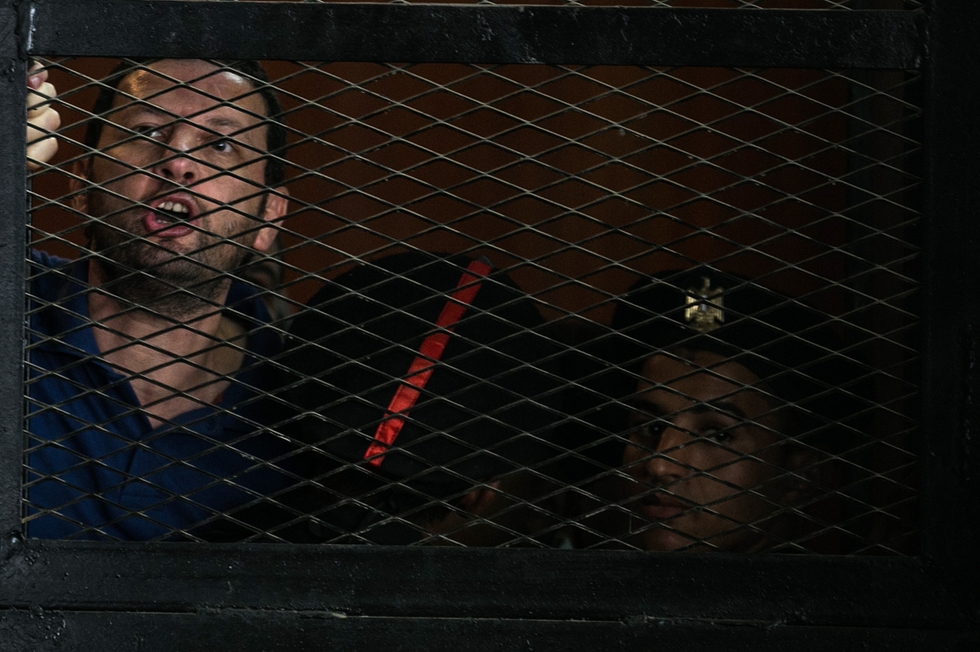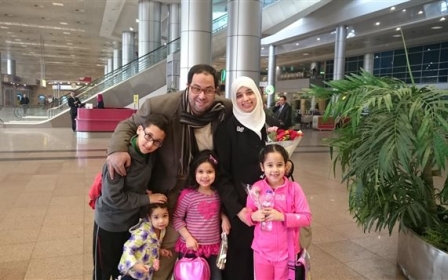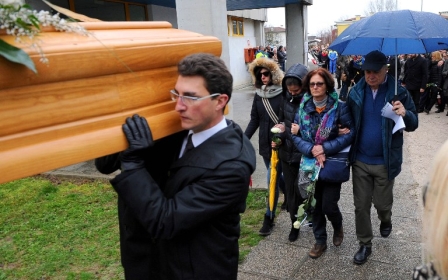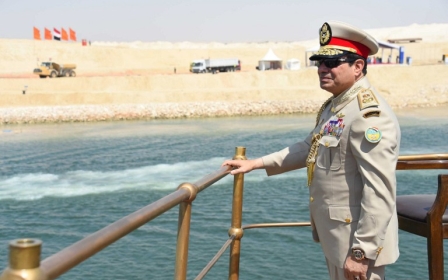What does it mean to be a political prisoner in Egypt?

“We have spoken a great deal about our own experience with democracy,” said Egyptian President Abdul Fattah al-Sisi to Lyse Doucet of the BBC last November. “I’m not denying people’s right to protest even against me,” he continued, “but you should know that we’re different from the West.” He added: “Ordinary Egyptians are terrified of facing the same fate as other countries in the region.”
In the same context, defending his rigid policies and his aides’ blatant violations of human rights, Sisi reiterated, “We are living in an exceptional stage in Egypt’s history. Egypt has been ruled by a state of emergency for the last 40 years and this is not the case now.”
The death penalty, extrajudicial killings, enforced disappearances and torture are the buzz words in Sisi’s promised democracy as he used to publicly declare that “Egypt is the mother of the world and will be as great as the world”.
Since their arrest after the military coup, the minister of supply in deposed Mohamed Morsi’s government, Bassem Ouda, and Muslim Brotherhood spokesman, Ahmed Arif, have, for the first time, been publicly heard in an Egyptian court protesting their detention and prosecution without a clear charge.
Ouda said to the judge: “I don’t know why I’m still in custody. Is it a charge that I lowered the price of oil?” He wondered: “Why am I here? I’ve never sold any Egyptian islands.”
Ironically, it was only this minister who was invited immediately after the coup to stay in the cabinet as a minister of supply due to the leaps of success he accomplished during his term. On his refusal, he’s been imprisoned for three years without a clear accusation. Recently, he challenged the court to find his signature on any court-referral document.
In the same context, Ahmed Arif said that he’s been exposed to unbearable torture that made him lose 49 kilograms in the cells of the coup’s jails. However, the judge promptly silenced Arif and said: “Nobody is torturing anyone.”
Shockingly, the international community insists on turning a blind eye not only to human rights abuses but also to Sisi’s disparaging view of people’s rights. It is no secret that Egypt’s prisons are bursting at the seams. Since the military coup of 2013, arbitrary arrests of political activists have soared to break all the records of totalitarian autocratic regimes of the Arab world.
Anybody who dares to speak out against the Sisi regime is destined to be jailed without fair trial; members of Muslim Brotherhood, ex-ministers, political activists, journalists, parliamentarians, together with the first democratically elected president of Egypt, Mohamed Morsi, continue to be rounded up by the security services.
Dozens of those political detainees have died in custody. Others are still enduring the torment of the inhumane conditions of the most notorious prisons in the world.
Arab social media activists cynically tried to classify the prisons of the Arab countries: Jordanian prisons were best in the extractions of confessions, while Syrian prisons were ranked first in humiliation and merciless arbitrary killing, whereas the Egyptian prisons were undisputedly the only place to meet all the above as they were labelled a “living hell”.
In that hell, the journey of agony starts when handcuffed prisoners are stripped to the underwear then herded into the prisons with a “welcome party”, which is a standard ritual of whipping and deliberate humiliation of political prisoners by guards who are queueing on both sides of the entrance of the prison.
Some political activists are signalled for special reception in the interrogation cells in underground dungeons where they are blindfolded, facing the wall and exposed to loud noise of a jamming radio for hours and even days.
Other detainees are pushed violently into tiny squalid and overcrowded cells or windowless rooms with unbearable boiling hot temperatures in summer and freezing conditions in winter. Things are worse when prisoners are denied mattresses and blankets especially when their families and lawyers are denied the prison visits which are being severely limited. Thus detainees’ families are unable to bring their children food, medicine and clothes which are desperately needed.
The specialty of the Egyptian prisons is that doctors are reported to indoctrinate the prisoners on how to commit suicide by exposing electrical wires and telling detainees how to hold them. Psychologically, prisoners’ rotation is another Egyptian technique that aims at destroying the morale of the detainee by changing his roommates and companions. Whereas solitary confinement is the most despicable method to destroy the psychology of the prisoner who is confined in a black hole, completely isolated from the outside, with no ventilation and no sense of time.
This epidemic of death in custody which is going uninvestigated definitely leads to a tremendous sense of hopelessness and political futility. Innocent people go in and they never come out. Their only crime is that they were peacefully exercising their human rights.
Presumably more people are going to die in those intolerable conditions with lack of adequate health care. This seems to be part and parcel of the political system that literally implements the counter-revolution punishment to the Egyptians of the January Revolution and its leaders.
Sisi’s crackdown on opposition activists didn’t exclude either the secularist and leftist activists nor the general supporters of his coup; Alaa Abdel-Fattah, a prominent figure of the January Revolution, has been in prison since his call for a demonstration to protest the continued military trials of civilians in 2013.
Ahmed Maher and Mohammed Adel, the founders of April 6 Movement, were also harshly sentenced to three years in prison and fines of 50,000 Egyptian pounds. Absurd charges of thuggery and insulting police officers were lodged against the activists.
Maher said, “The January Revolution rose against Mubarak practices of dictatorship and cruelty.” Heralding a brewing revolution that will erupt in the streets of Egypt rejecting the repression and oppression of the Egyptian military coup that he once supported, he said: “Today’s regime is much worse than Mubarak’s.”
Building new prisons is the only business that Sisi’s regime perfects. Since the military coup, Sisi has built dozens of prisons to bury Egyptians alive, while other prisons are seven-star hotels, where Mubarak and his children are encamped as honoured guests.
The bitter fact is the silence of the international community to the continued violation of human rights. The western support for Sisi is shredded by the consecutive failures of the Egyptian regime to save the promised stability the West is so keen on. Weirdly, the budget of one prison in Jamasa was $100m, which is five times the budget of both the Ministry of Health and education combined.
- Ahmed al-Burai is a lecturer at Istanbul Aydin University. He worked with BBC World Service Trust and LA Times in Gaza. He is currently based in Istanbul and mainly interested in the Middle East issues. You can follow him on Twitter @ahmedalburai1
The views expressed in this article belong to the author and do not necessarily reflect the editorial policy of Middle East Eye.
Photo: Former Egyptian Minister of Supply, Bassem Ouda (L), stands behind bars as he is tried at a court in Cairo, on 30 August, 2014 (AFP).
Middle East Eye propose une couverture et une analyse indépendantes et incomparables du Moyen-Orient, de l’Afrique du Nord et d’autres régions du monde. Pour en savoir plus sur la reprise de ce contenu et les frais qui s’appliquent, veuillez remplir ce formulaire [en anglais]. Pour en savoir plus sur MEE, cliquez ici [en anglais].





